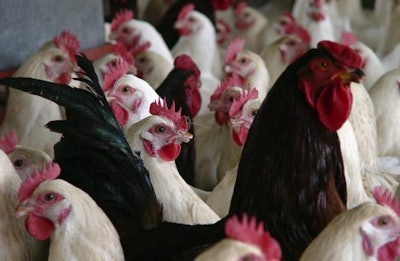
The United States has high hopes for poultry exports to Cuba. For some time, the U.S. has shipped chicken to the island. Now, with the opening of diplomatic relations, apparently there are great expectations.
Let's put things in perspective and start with basic data. According to the ONEI (National Bureau of Statistics and Information) of Cuba, there were 11.16 million Cubans in 2012. Other sources put that figure at 11.6 million today. My point is that Cuba is not one of the most populous countries in Latin America. According to data from Cuba, annual consumption is in the range of 240 eggs and 19 kilograms of chicken per capita. Although seemingly high figures, they still indicate a good growth potential.
In addition to exporting chicken and eggs to the island, there is the possibility of developing commercial poultry, as we know it in the rest of the world. This implies grains, equipment, poultry houses, feed additives and so on. All this is possible, as long as the economy allows for it.
However, the exchange can go two ways, so let’s look at the other side of the coin. Could Cuba provide genetics to the global poultry industry? First, there has been a lot of research carried out in Cuban institutions, which could be strengthened with the signing – this past March – of a memorandum of understanding between the U.S. Department of Agriculture and the Ministry of Agriculture of Cuba for technological cooperation on issues related to animal and plant health, as well as other areas of mutual interest.
For example, an important area of great strength of Cuban poultry is the National Poultry Reserve. The reserve has a large number of genes, genotypes and races, a work organized in strategies such as conservation, breeding, new lines and recovery of native breeds.
So Cuba has its own genetics. By working with genetic lines adapted to the climatic and management conditions, and having lines, genes and genotypes in reserve, could Cuba could bring some of this wealth to the trend of slow-growing birds, organic, free-range chickens and other niche markets? Native strains have proven to be highly resistant to weather and certain diseases. Maybe we should open our eyes to this area. What do you think?


















